Board exams are difficult times for all students. After the 1st board exam of Class X, the 2nd one of Class XII is more difficult. Also known as HSC exam, the results of this examination play an important role in deciding the future of the candidate. The moment dates for the HSC exam are declared, an untold fear grasps the students. But student counsellors opine that getting nervous will not solve any problem. Rather than getting scared and nervous, making proper preparations for the exams will be of greater help.
Mentioned below are some highly effective and important tips, which will help in getting high marks in HSC exams without fail.
Tip 1: Keep on challenging yourself for doing better
Remember that you are your greatest contender. Try to do better than the previous time. Take challenges in the form of exams. If in the last exam, you secured 50% marks, try to outdo that by scoring 60% in the coming exam. Defeat the previous percentage and always target for higher scores. Target increase in overall percentage than considering marks in individual subjects. This will help in analysing the exact areas you need to improve on and this will boost up scores and percentage.
Tip 2: Maintain the right attitude all throughout
Maintaining a positive attitude is very important in crucial stages of life. With this attitude, it is possible to tackle many difficult problems easily. A positive attitude helps in maintaining high confidence levels and with this it is possible to achieve flying colours in the toughest exams of life. Not only in HCS exams, positive attitude and high confidence levels can help in cracking the most difficult of interviews with ease.
Tip 3: The main syllabus book is important
Most of us immerse ourselves in innumerable reference books that are available for each subject. These heavyweight books help in understanding the subject in a better and easy manner. But most students ignore the main syllabus book while studying from the reference books. As per experts, it is always best to stick to the main syllabus book and cover everything that is there in the book. You will notice that students who fare with flying colours often stick to syllabus books only as they understand the true significance of the same. Board questions are always set from the syllabus book only. Reference books are good for competitive exams after Class XII.
Tip 4: Concentrate on the English paper
In Class XII, HSC exams, different students choose different streams like Arts, Science and Commerce. There are individual subjects in these streams and choices can be made as per preferences. Along with these subjects, there are language subjects too in the form of English and another language. Most students ignore the English paper and this might lead to drop in overall percentage. Along with preparing for other subjects, make sure that you pay equal importance to English paper as well.
Tip 5: Work on the weak areas more
If you have taken up Science stream, you might be good in Physics and Mathematics, but not that good in Chemistry. Identify the weak areas and start working on them so that these subjects do not impact the overall percentage. Most students don’t want to study subjects they are weak at, and this is the biggest mistake. Instead of shying away from the subject, try finding the weak points and work on them to turn them into strong areas.
Tip 6: Time management is very important
HSC exam is probably the most difficult exam, you will have faced till date. So start bracing yourself for that. Board exam preparation, one important thing to consider is learning proper time management skills. Make a daily schedule that you must follow. Utilize whatever little time you get for studies as this will help in increasing the marks considerably. Study subjects that you want to retain in memory during the morning hours when the mind is fresh. Invest minimum 8 hours in a day for studies. Equal time should be devoted to each subject so that every subject is covered.
Tip 7: Solve papers of previous years keeping the time in mind
Old question papers are great assets for students. It has been seen that students who have practiced question papers of previous years do much better on board exams when compared to students who haven’t done the same. Solve previous years’ question papers, keeping the time frame in mind. Do not solve the question paper in parts or take a longer time than needed. This will not serve the purpose. While solving the paper, start as if you are sitting in the exam hall and solve it accordingly. You might not be able to fare well right in the beginning, but with practice you will surely be able to do better. Practicing 10 years question papers are the best thing to do.
Tip 8: Concentrate on cleanliness of the answer sheet
It is quite obvious that an answer sheet, which is clean, fetches more marks than the one which is filthy. Many students cut through lines and words innumerable times in the answer sheet, hampering the neatness and cleanliness of the sheet. Many students ignore these simple things, but these can help in fetching few extra marks in board exams. And these few extra marks help in boosting the overall percentage to quite an extent.
Tip 9: Take care of your health
It is needless to say that exam times are highly stressful. Therefore, it is important that you take proper care of your health at this time. Eat properly, take proper rest and indulge in activities which keep the mind relaxed. This is important because if your health is not good, you will not be able to handle the stress of exams well.
Tip 10: The night before the exam is crucial
You might be surprised to know that the night before the HSC board exam is very crucial. Almost 10% of your marks depend on the night before the exam. Try and stay as relaxed as possible before the exam night. Don’t rush through the notes and books as this will puzzle your mind. Eat well and sleep properly so that you wake up fresh and fine on the morning of the exam. You will be able to perform much better in the exam.
Tip 11: On the day of the board exam
On the day of the exam, keep your cool as much as possible. If you find that there are pending things to study, ignore them. Concentrate on things you know instead of fretting about things you don’t know. The best thing is to keep all books, notebooks and notes at home and reach the exam center with free mind. Try to focus and concentrate without stressing yourself much.
Tip 12: In the examination hall
Once the exam bell rings and question papers are distributed, gather all your mental strength and convince yourself that you will do great. Read each question in detail and chalk a plan as which ones you will do first. Attempt the questions that you know very well. Starting with these will boost your confidence. Read through the answers and revise them after writing. Don’t panic if you don’t know a particular question. Leave that for last.
Apart from these above mentioned tips, there are some other real time tips that are useful for HSC preparations. Some of them are as follows:
With the help of these tips, no one can stop you from getting high marks in HSC board exams. We, at CEDP Skill Institute wish the students appearing for their HSC board exams all the best. You can contact us regarding any kind of help and assistance required for the exam.
[:en]
With mere 10 percent of India’s work force being technically sound, the government of India has taken many steps in various forms to see that the youth get quality vocational skill set to fuel the employment world.
If we talk about the Indian workforce, then it is mandatory to ask about how many men and women are employed and how productive they are?
The available opportunities for them and the up-gradation provisions of the required skill set. Person, enterprises & countries, all seek to develop their skill and invest in it as a future dividend.
Given the mammoth size of its 500 million plus workforce, our country, India, can become the driving agent behind a skills-based economy in the world.
The one challenge that plague India’s chance of becoming the centre & hub of skilled labour force, which is discussed time and again in every important forum is the drastic dearth of technically well-equipped and skilled workers.
A recent survey conducted by the Manpower Group revealed that 67 per cent of India’s employing industries are not able to find resources that match their requirements.
Important to note is that these industries are not facing problem of worker or labours, they are facing crunch of skilled professionals and employees.
Eventually each countries development and growth depends on its people employed and how much productive they are for the respective industry & nation, which largely depends on the skill sets mastered by the work force and how effectively it is used.
Primarily education gives everyone an opportunity for the development of their potential, thus making them eligible for employment.
Vocational skill training provides one to fine tune his core work skills, industry based knowledge and professional competencies, which makes possible the move from education into the world of work.
Despite the Indian economy witnessing growth in the last two decades, the growth has not been in sync, it’s not uniform. Low employment and education level, high dropout cases, lack of guidance and support in vocational training, which can be catalyst in providing high employment rate & opportunities are still widespread.
The unavailability of vocationally skilled workforce is obvious from the differences of demand and supply in the employment sector.
As per the findings of Boston Consulting Group, by 2020 there will be worldwide shortage of around 47 million skilled working force, but India alone will have an eligible working force in surplus i.e. the number of working people in India will be around 56 million.
The age bracket will be 25 – 30. Currently only 10 percent of the youth population of India have proper vocational training. Realizing this under achieved numbers and the potential the Vocational skill set can bring along with it, the government of India has taken many steps in various forms to see that the youth get quality vocational skill set to fuel the employment world.
Skills development courses and training programs improves people’s ability to work & creates opportunity for them at work, offering scope for satisfaction and progress.
Vocational Education is crucial. It is instrumental in making the significant contribution towards economic growth of the underdeveloped countries by providing suitable and sustainable manpower corresponding to the needs of the industry & society both at national and global level.
Access to vocational training and skills development gives way for & opens up the opportunities, benefits of initial & lifelong learning, thus empowering men and women of all ages, in urban and rural areas. It gives them platform to achieve & realize their aspirations of earning livelihood and live a respectable and dignified life.
If students, parents, authorities think in this direction and make required effort in imparting skill based education then it can work as a catalyst for the unemployed labour force of India, making her the key contributor to the skill based work force and economy.
Youths of any country are the most important, vibrant, potentially viable work force. Almost 70 per cent of India’s population is in the age group of 30-35 years.
In general, managerial and technical capabilities Indian’s are on par with the best of the world countries. Despite their phenomenal capabilities and advantage, India’s present is marred with a low vocational education base among the youths.
In comparison to China’s 21 percent, India has just 12.3 percent of skilled labours. In developed countries the proportion is too high i.e 54.6% and the world average is 23.2%.
There is need and necessity of converting the available opportunities into a reality for youngsters & that to on a massive scale and speed in diverse fields like engineering, technology, architecture, pharmacy, management, applied arts & crafts. This can be achieved through vocational education.
According to a report, most of ITIs have seen almost 100% placement on campus despite the uncertain economic scenario.
Apart from the government managed Skill Institutes, the private players are also helping in improving the infrastructure of the existing vocational training institutes; they are bringing in the contemporary course curricula through these centres, well qualified trainers, and tie ups with the corporate for the consumption of the vocationally trained people.
Vocational Course provides the dual advantage of education and skill development at all levels. Through diversified vocational training and skill set India can transform its human resource to productive assets.
Worldwide, Germany is leading in terms of the vocational training system, which is why it has a recession proof economy and its engineering products are desired in the world.
Singapore is now giving great importance to vocational training and is going full steam with it. China is banking heavily on vocational education to solve its skill mismatch issues.
Of late India has also taken vocational route to churn out skilled professionals and achieve the high growth momentum.
For detail and in-depth knowledge about various vocational courses and their future prospects, students can get in touch with the counsellors of CEDP Skill Institute.[:]
[:en]With fees of primary education going upward, paying for the education is becoming unaffordable for many. In today’s time when education is a pre-requisite for success in the corporate world, what remains for those who aspire but can’t afford the finance required?

Image Courtesy: Pixabay.com
Vocational education has come as a boon for such. Vocational education is the other alternative, in-fact best alternative available for them.
Initially people had reservations about such career oriented vocational courses vis-à-vis regular once, but not now. In-fact the attitude is changing for the good.
 ‘Vocational’ means ‘job-related’. So a student enrolled in a vocational course means that they are learning skills that will help them to get a job in organized sector.
‘Vocational’ means ‘job-related’. So a student enrolled in a vocational course means that they are learning skills that will help them to get a job in organized sector.
Going by its name, vocational course by virtue of its result oriented curriculum prepares and makes a student ready for a specific profession, trade or career.
Vocational courses are customized and tailor made and directly proportionate to the need and requirement of the industry, thus making students completely ready for industry specific jobs and career.
Contrary to the traditional approach of the academic learning, vocational course are more training oriented and skill focused. They are a stepping stone towards the world of stable career and job oriented education.
There are many options available, out of which, students can choose one based on their interest and can make a professional career out of it.
There are institutes offering vocational course and training in the field of Hotel Management, Automobile Engineering, Nursing Aid, DMLT, Industrial Safety, Naturopathy and others. Vocational courses are flexible, relevant, inclusive and creative in nature, in which more emphasis is given on the practical exposure.
Know more about vocational diploma courses after 12th.
“Vocational education programs have made a real difference in the lives of countless young people nationwide; they build self-confidence and leadership skills by allowing students to utilize their unique gifts and talents.” – Conrad Burns
As per the latest survey, it is found that only 25 percent of the graduates coming out of the traditional education system are having skills worth employable. The above findings are also seconded by The Economic Forum (WEF), which has maintained that only 25 per cent of Indian professionals are considered employable for jobs in the organized sector, highlighting the need and importance of the higher quality vocational education, which can enable and prepare today’s youth for industry specific jobs.
Vocational courses and training institutes are therefore the need of the hour in India. Their result oriented curriculum supplements formal education and improve the employ-ability of Indian youths.
Globally India ranks second in-terms of age of working population (18-29). These are the youth which have very important role to play in the growth and progress of the country.
Their working skill sets will decide the future of India. It is imperative that these working populations are imparted with the right and sufficient skill, equipped with the industry specific training to make them productive for themselves and the country.
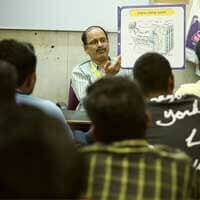 Equipped with a vocational training and qualification, you are more likely to be able to start working sooner.
Equipped with a vocational training and qualification, you are more likely to be able to start working sooner.
For a job seeker the vocational certificate is always an added advantage thus making them ready to take on the skilled and good paying job immediately.
Earning a certificate from a vocational training institute, which states that you have mastered the necessary skills to work in a particular sector and profession, will always add value to your credentials while out there seeking job. Thus, vocational courses, improves your employability chance.
Vocational training imparts certain amount of experience to the students, which the employer are looking out for.
Being well aware of the industry requirements and skills, which are going to be in demand, the vocational training institutes’ trains’ young people, which will help them acquire the essentials and industry specific skills.
The vocational education offers a wide variety of choice in terms of specialization. They are short term and less expensive. Students can opt for the one based on their interest and skill set.
It gives many a chance to upgrade their educational qualification who, otherwise could not enroll in college because of low grade or financial problems.
The instructors at the vocational institutes are real time professional from the industry thus imparting hands on and absolute information to the students on the respective professions, thus enabling them to start their career at the earliest.
India receives only 10 percent of the skilled and trained work force in comparison to 80 percent in Japan and 90 percent in Korea. Vocational training institutes here will play an important role in bridging the gap between skilled professional availability and requirement in job sector.
These training institutes churn out professionals which fulfills the shortage of the skilled man-force required. Vocational Institutes will help build skilled India whose importance has been felt by the government of India.
The faculty of the vocational institutes adopt principles of teaching and learning which help students to adopt a competency-based approach essential in job market.
Vocational course offers a plethora of option for the students to make a choice ranging from hospitality, automobile, healthcare, I.T, fashion, office management, trade, agriculture, home science and the list goes on.
Vocational Education is been created in such a way that it is relevant and inclusive. Indian Government has understood the importance of vocational education and has taken various initiatives to promote it as in the coming years India will have young and dynamic working population – the youths.
A article on how to choose a Vocational School.
To know more about the prospect and details of the vocational courses students can contact CEDP a skill institute established to nurture vocational development skills of the students.[:]
The most common way people give up their power is by thinking they don’t have any option.
Well, that’s the case of most students as they appear for their 12thexam.
“What career is right for me?” “What should I do to take up the right career?” These thoughts will occupy your mind continuously. With this confused state of mind, you may wander places to gather information, to set up a bright career ahead.
In the end, you would want to pursue a career that will benefit you for a lifetime. Ask yourself some basic questions while selecting the right career.
Such reflective questions and thoughts will help you in your career selection choices. Meanwhile, we present you several diploma and degree courses that are offered after 12th exam. Reading through this information will give you a short glimpse of these courses and help you select your right career and create a bright future!
Note: Images are used from Pixabay under Creative Commons CC0 with no attribution required.
Know about International 3 years Hotel Management Course in Mumbai with Internship in Dubai
Select Diploma/Degree from the options below:
Diploma in Fashion Designing:
Why choose fashion designing as a career?
What will you study in the fashion designing course (some topics)?
What work can you do?
In the initial years of your career, you will assist your team/senior designers in garment designing. Based on your interest, skills and creativity, you could end up working as an independent fashion designer or a senior/lead fashion designer in reputed garment design/manufacturing companies. Typically, your work will be to design/create:
Course duration: One year course after 12th.
Diploma in Computer Application:
Why choose computer application as a career?
What will you study in the computer application course (some topics)?
What work can you do?
Course duration: One year course after 12th.
Diploma in Yoga:
Why choose yoga training as a career?
What will you study in the yoga training course (some topics)?
What work can you do?
You can either work part-time or full-time in health centres, schools and colleges. You could also open your yoga centre. Typically, your work will involve:
Course duration: One year course after 12th.
Diploma in Banking:
Why choose banking as a career?
What will you study in the banking course (some topics)?
What work can you do?
Duties in banks are varied in nature. You could work in departments, such as personal banking, retail banking, loan servicing, wealth management, investment banking, deposit operations, electronic banking, commercial banking, mortgage banking, etc. Depending on role, you may need to interact with customers on a daily basis, guide them with bank products, resolve queries, monitor staff duties and supervise bank processes.
Course duration: One year course after 12th.
Diploma in Financial Accounting:
Why choose financial accounting as a career?
What will you study in the financial accounting course (some topics)?
What work can you do?
You will maintain a company’s financial records and tax reports. These reports give an idea of the company’s economic performance (balance sheets, cash flow statements, and profit and loss statements). Through these reports, the company owner can decide if the company is performing as per its goals and can take corrective steps.
Course duration: One year course after 12th.
Diploma in Industrial Safety:
Why choose industrial safety as a career?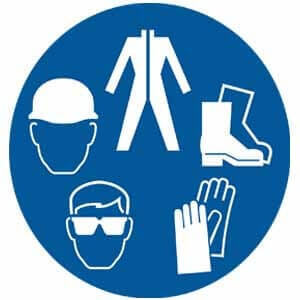
What will you study in the industrial safety course (some topics)?
What work can you do?
You can find jobs in private and consulting companies, and government organizations. Your basic duty is to ensure that workplaces are hazard-free for employees, as per government guidelines and regulations. Accordingly, you could:
Course duration: One year course after 12th.
Diploma in Business Management:
Why choose business management as a career?
What will you study in the business management course (some topics)?
What work can you do?
Management professionals can find jobs in all companies. Skilled managers are in high demand. Consequently management professionals with the right experience and credentials are some of the highest paid professionals in the world.
Course duration: One year course after 12th.
Why choose hotel management as a career?
What will you study in the hotel management course (some topics)?
What work can you do?
You can be employed in hotels, restaurants, cruises, ships, catering companies and all establishments that offer food service, accommodation & other customer service-related jobs. Positions at the entry-level do not require more than a diploma. However, extensive training and work experience is necessary for upper-level management positions. Common job profiles include Front Desk Receptionist, Restaurant Manager, Duty Manager, etc.
Course duration: One year course after 12th.
[You can check our Hotel Management Course in Mumbai]
Diploma in Physical Education:
Why choose physical education as a career?
What will you study in the physical education course (some topics)?
What work can you do?
You can work as a sports coach and/or trainer. This career opens up opportunities within the health & fitness industry, schools & colleges, recreation centres, fitness centres and establishments offering adventure activities. It is recommended to pursue higher studies in the field of physical education after completing the diploma course and gaining some work experience.
Course duration: One year course after 12th.
Diploma in Retail Management:
Why choose retail management as a career?
What will you study in the retail management course (some topics)?
After completing this diploma, you can get a job as a trainee in an outlet. You will understand how to run and manage a store. Your knowledge and experience will enable you to understand the jargons and working of the retail industry. It would help if you pursue a management course or an advanced retail management course for better job opportunities. With experience and knowledge, you could work in the managerial capacity. Common job profiles would be Sales Manager, Retail manager, Project manager, etc.
Course duration: One year course after 12th.
Diploma in Nursing:
Why choose nursing as a career?
What will you study in the nursing course (some topics)?
What work can you do?
Apart from hospitals and nursing homes, you could be employed in schools, companies and houses of the rich & elite. Typically, you will be assigned to a ward—emergency rooms, intensive care units, etc. You would work with doctors & nurses in a team to monitor patients’ condition and execute the daily treatment plan. You could also work as a surgical nurse in the operation theatre and assist surgeons. Private nurses are also in demand. Depending on your education and skill, you could also work as a midwife.
Course duration: One year course after 12th.
[You can check our Nursing Aide Course in Mumbai]
Diploma in Physiotherapy:
Why choose physiotherapy as a career?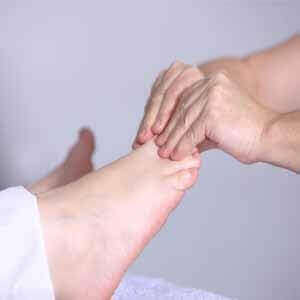
What will you study in the physiotherapy course (some topics)?
What work can you do?
You could work in hospitals, nursing homes, health-care centres, gyms, sports centers, multinational companies, old-age homes and NGOs. There are opportunities for training as well. In hospitals, your patient profile would be diverse. Patients from departments, such as orthopedic, cardiology, cancer, surgery, gynaecology, etc. require physiotherapists to reduce their stay in hospital and recover quickly. Physiotherapists are in demand globally.
Course duration: Two years course after 12th.
Diploma in Medical Lab Technology:
Why choose medical lab technology as a career?
What will you study in the medical lab technology course (some topics)?
What work can you do?
Medical lab technologists (MLT’s) carry out tests and investigations in labs to diagnose a disease. An MLT’s report helps the doctor to start the patient’s treatment. MLT’s test samples of blood, urine, stool, body tissues, etc. They work in hospitals, clinics and labs. Common job profiles are lab technician, lab technologist, lab manager, tutor, etc. You could also consider training as a career option. MLT’s work domains include blood banking, immunology (study of immune system), microbiology (study of disease causing organisms) and drug efficacy tests.
Course duration: One year course after 12th.
[You can check our DMLT Course in Mumbai]
Diploma in Radiological Technology:
Why choose radiological technology as a career?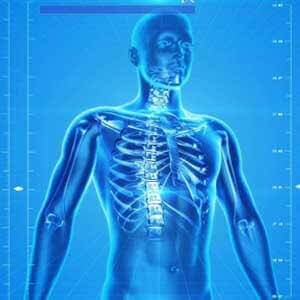
What will you study in the radiological technology course (some topics)?
What work can you do?
Radiological technologists use X-rays to assess the internal parts of the body and assist doctors to diagnose illness and injury. They run tests, such as CT scan, sonography and MRI, etc.
Radiological technologists explain procedures to patients, relax them for the tests, carry out tests, maintain equipment and document records. Radiological technology is significant in diagnosis and treatment of cancer and ulcers. Radiological technologists can find jobs in labs, hospitals and diagnostic centres. Job profiles are X-ray technician, radiologist assistant and ultrasound technician.
Course duration: One year course after 12th.
Diploma in Electrical Engineering:
Why choose electrical engineering as a career?
What will you study in the electrical engineering course (some topics)?
What work can you do?
As an electrical engineer, you could work in government, public or private sector. You could find jobs in atomic/hydel/thermal power plants, railways, aviation, electricity board and consultancies. Your job would be related to designing, developing, testing, supervising and maintaining electrical machinery. You may also need to work on issues and concerns related to distribution of electrical energy. Areas of specialisation are power generation, energy transmission, energy distribution, communication, etc.
Course duration: One year course after 12th.
Diploma in Mechanical Engineering:
Why choose mechanical engineering as a career?
What will you study in the mechanical engineering course (some topics)?
What work can you do?
Mechanical engineers design and build manufacturing units, and simple and complex machinery.
They are trained to be skilled in various domains. They are trained in computer applications, electricity, structures, etc. They find jobs in government, public or private sector. Industries employing mechanical engineers are power, oil & petrochemicals, agriculture, education, steel, aerospace and automobile, etc.
Course duration: Three years course after 12th.
[You can check our Automobile Course in Mumbai]
Diploma in Civil Engineering:
Why choose civil engineering as a career?
What will you study in the civil engineering course (some topics)?
What work can you do?
Civil engineers design, develop, build, test, supervise and maintain infrastructure. Their work also includes designing and building structures, such as dams, waterways, airports, buildings, tunnels, bridges, pipelines and sewage systems. Specializations within civil engineering include structural, environment and transportation. A civil engineer can find jobs in private & consulting companies and government organizations. Usually, work takes place at construction sites and manufacturing plants.
Course duration: Three years course after 12th.
Diploma in Chemical Engineering:
Why choose chemical engineering as a career?
What will you study in the chemical engineering course (some topics)?
What work can you do?
As a chemical engineer, you could work in any of the three domains: Research, production and designing. Researchers carry out studies and investigations to design and/or improve processes and equipment with respect to safety and economics. Production jobs can be found in chemical process industries, oil exploration & refineries, pharmaceutical companies, etc. Such jobs involve materials production. Designing jobs can be found in engineering, procurement and construction organizations. In general, you can find jobs in private companies, consulting firms and government organizations.
Course duration: Three years course after 12th.
Diploma in Biotechnology:
Why choose biotechnology as a career?
What will you study in the biotechnology course (some topics)?
What work can you do?
This diploma is a stepping stone to job in laboratories and opportunities for further education. With experience & higher education, you can find jobs in the government and private sector. Employment opportunities are available in biopharmaceutical companies, research institutes and food supply companies. If you have good theoretical knowledge of concepts, but don’t enjoy laboratory work, you could work as product specialists in companies dealing with laboratory equipment and supplies.
Course duration: Two or three years course after 12th.
Diploma in Nutrition and Dietetics:
Why choose nutrition and dietetics as a career?
What will you study in the nutrition and dietetics course (some topics)?
As a dietician, you will work in health & fitness centres, hospitals, hotels and weight-loss clinics. You will help people to plan and monitor their diet. You can also be sought by clubs, schools & colleges to conduct training on food nutrition, eating habits and diet. With higher education and experience, you also stand a chance of working in research projects and Fast Moving Consumer Goods (FMCG) companies.
Course duration: Two years course after 12th.
Diploma in 3D Animation:
Why choose animation as a career?
What will you study in the 3D animation course (some topics)?
What work can you do?
Animators can work in creative studios, advertising firms, engineering companies, software industries and video games industry. There is plenty of scope for specialisation as well, for example, special effects, lighting, etc. Typical job profiles are 3D Modeler, Art Director, Animator, Graphic Designer, etc.
Course duration: One year course after 12th.
Diploma in Interior Designing:
Why choose interior designing as a career?
What will you study in the interior designing course (some topics)?
What work can you do?
Typically, an interior designer’s job involves designing properties and spaces as per client’s needs within defined timelines and budget. The job involves a lot of research and hard work. Your places of work could include architectural firms, real estate developers, medical facilities, shopping malls, restaurants, hotels, event management companies, other private institutes and government organisations. After building some expertise and reputation in the market you could also set up your own business. You could also consider teaching jobs in private or government institutes.
Course duration: One year course after 12th.
Diploma in Multimedia:
Why choose multimedia as a career?
What will you study in the multimedia course (some topics)?
What work can you do?
Multimedia artists use technology to create designs, graphics and animations for electronic media. Specialisation is recommended in this profession. After completing the course, you could find jobs related to web designing, designing of computer games, advertising graphics, films, etc. Common job profiles are graphic designer, image editor, web designer, audio editor, flash developer, network engineer, sound expert, etc. You could choose to work as a freelancer as well. You will need to upgrade your skills constantly due to rapidly evolving trends in technology.
Course duration: One year course after 12th.
Diploma in Advertising and Marketing:
Why choose advertising and marketing as a career?
What will you study in the advertising and marketing course (some topics)?
What work can you do?
You could find jobs in media companies, digital marketing, advertising & communication departments of private & public companies, film production companies, market research organisations, advertising and publicity agencies, etc. You could also work as a freelancer. Common job profiles are client servicing, market research, media research, copywriters, scriptwriters, visualizers, etc.
Course duration:
One year course after 12th.
Diploma in Event Management:
Why choose event management as a career?
What will you study in the event management course (some topics)?
What work can you do?
Organising an event involves the following tasks.
You could be involved in organising different types of events, such as fashion shows, musical concerts, seminars, exhibitions, weddings, parties, etc.
Course duration: One year course after 12th.
Diploma in Sound Recording:
Why choose sound recording as a career?
What will you study in the sound recording course (some topics)?
What work can you do?
Sound engineers understand the details of sound. Your job will be to record, edit, mix, and manipulate voice & sound. You could find jobs in movies, television shows, music companies, music recording studios and event management companies. You may need to travel to different locations for on-site sound engineering tasks. A sound engineer is one of the sought after persons in live shows.
Course duration: One year course after 12th.
Diploma in Photography:
Why choose photography as a career?
What will you study in the photography course (some topics)?
What work can you do?
Based on your interest and specialisation in photography and opportunities, you could work at studios, agencies and companies. Alternatively, you may choose to work on a part-time and/or freelance basis or assist a renowned photographer. You may need to travel for work. While some photographers work full time, many work on a part-time basis, and their workload may vary depending on the season.
Course duration: One year course after 12th.
Diploma in Travel & Tourism:
Why choose travel and tourism as a career?
What will you study in the travel and tourism course (some topics)?
What work can you do?
You could work in government tourism departments, rail services, bus & car hire companies, cruise companies, tour operators, hotels, airlines, travel agencies and cargo companies. Common job profiles are travel agent, tour planner, tour operator and tourism trainer. Learning different languages could benefit your career and open for you multiple opportunities nationally & globally.
Course duration: One year course after 12th.
Diploma in Various Languages:
Why choose languages as a career?
What will you study in the various languages course (some topics)?
International languages: French, Spanish, German, Japanese, Italian, Russian, Mandarin, Persian and Arabic
Domestic languages: Sanskrit, Bengali, Tamil, Hindi and Marathi, etc.
Language experts can find work in government organisations, embassies, universities & colleges, hotels, travel & tourism industry and multinational companies. Typical jobs for language experts are interpreters, translators, research and training. Freelancing opportunities are available. You could also consider taking private tuition. French and Spanish language experts have always been in demand.
Course duration: One year course after 12th.
Degree in Bachelor of Commerce (B.Com):
Why choose commerce as a career?
What will you study in the bachelor of commerce (B.Com) course (some topics)?
What work can you do?
As a B.Com graduate, you can find jobs in banks, marketing firms, consultancy firms, finance department of companies, accounting firms, treasury and forex department, etc. Common job profiles are finance consultant, insurance consultant, market researcher, administrative analyst/officer, accountant, tax consultant, auditor, financial analyst, stock broker, to name a few. C.A., M.Com. and M.B.A. are the common post-graduate options that students avail. Upcoming specialisations are risk management and disaster management.
Course duration: Three years course after 12th.
Degree in Bachelor of Management Studies (BMS):
Why choose management as a career?
What will you study in the bachelor of management studies (BMS) course (some topics)?
What work can you do?
As a BMS graduate, you can find jobs in the marketing, finance, HR & operations departments of companies in private and government sectors. BMS graduates are in demand in marketing firms, consultancy firms and advertising agencies. Banks, finance department of companies and accounting firms also recruit BMS graduates. Common job profiles are media planner & buyer, marketing assistant, brand manager, e-commerce analyst, recruitment analyst, project analyst, etc.
Course duration: Three years course after 12th.
Degree in Bachelor of Business Studies (BBS):
Why choose business studies as a career?
What will you study in the BBS course (some topics)?
What work can you do?
BBS graduates can take up careers in finance, marketing and human resource management. Employment opportunities are available in both private and government sectors. Multinational companies, marketing firms, consultancy firms, advertising agencies, etc. recruit BBS graduates. They can find job opportunities as business analyst, public relations executives, HR executives, information analyst, risk analyst, share broker, market researcher, property manager, events manager, etc. Students can pursue further education, such as M.A., M.B.A, M.B.S. and M.Phil. They can also compete for Civil Services.
Course duration: Three years course after 12th.
Degree in Bachelor in Business Management (BBM):
Why choose business management as a career?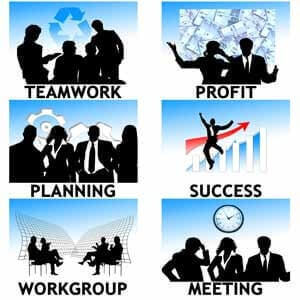
What will you study in the business management course (some topics)?
What work can you do?
BBM graduates can find jobs in both private and government sectors. Employment opportunities are available in domains, such as finance, marketing and human resource management. Multinational companies, marketing firms, consultancy firms, advertising agencies, etc., recruit BBM graduates. They can find job opportunities as business analyst, public relations executives, HR executives, information analyst, risk analyst, share broker, market researcher, property manager, events manager, etc. Students can pursue further education, such as M.A., M.B.A, M.B.S. and M.Phil. They can also compete for Civil Services.
Course duration: Three years course after 12th.
Degree in Bachelor in Business Administration (BBA):
Why choose business administration as a career?
What will you study in the business administration course (some topics)?
What work can you do?
Some of the specialisations offered under this course are sales & marketing, finance & accounting, air travel management, hotel & tourism management, banking & insurance, information technology and international business, etc. BBA graduates can find jobs in both private and government sectors. Multinational companies, marketing firms, consultancy firms, advertising agencies, etc. recruit BBA graduates. Graduates can find job opportunities as business analyst, public relations executives, HR executives, information analyst, risk analyst, share broker, market researcher, property manager, events manager, etc. Students can pursue further education, such as M.A., M.B.A, M.B.S. and M.Phil. They can also compete for Civil Services.
Course duration: One year course after 12th.
Degree in Bachelor of Mass Media (BMM):
Why choose mass media as a career?
What will you study in the mass media course (some topics)?
What work can you do?
It is recommended that after completing the course, students join companies as interns to learn the practicalities and develop their skills. Career opportunities are available in both government and private sector. You could work in news channels, newspapers, radio, films, television, publication houses, online media companies and multinational companies, etc. Common job profiles are public relations officer, special correspondent, producer, radio jockey and event manager, etc.
Course duration: Three years course after 12th.
Degree in Chartered Accountancy (CA):
Why choose chartered accountancy (CA) as a career?
What will you study in the CA(CPT) course (some topics)?
What work can you do?
CA’s can work as an auditor, accountant and finance professional or as an independent consultant. They can find jobs in banks, almost all companies, auditing firms, mutual funds, portfolio management companies, investment houses, stock broking firms, legal firms, patent firms, attorneys, trademark and copyright registers. CA’s offer consultancy in financial accounting, private audit, cost accounting, tax management, corporate law, project planning, and finance & business advice.
Course duration: Three years course after 12th.
Degree in Bachelors in Banking & Insurance (BBI):
Why choose banking and insurance as a career?
What will you study in the banking and insurance course (some topics)?
What work can you do?
A bank has several departments: personal banking, rural banking, corporate banking, etc. As part of your role, you may need to interact with customers on a daily basis. Your additional job responsibilities may include sale of bank products, query resolution and supervisory tasks. Insurance-related jobs are available in bank’s distribution channels, government and private insurance companies. Insurance is a widely-spaced domain with categories, such as general insurance, health insurance, etc.
Course duration: Three years course after 12th.
Degree in Hotel Management:
Why choose hotel management as a career?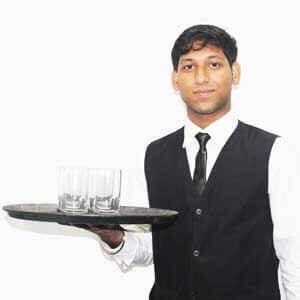
What will you study in the hotel management course (some topics)?
What work can you do?
Trained hotel management professionals have an edge over untrained graduates in this industry. After completing this course, students can find jobs in hotels, restaurants, cruise ships, catering companies, guest houses, fast food outlets, lounges & catering departments of companies and organisations. After graduation, students can join as trainees. After the training period, they can expect a hike and promotion. An experience of 3-5 plus years could award them with the post of a manager.
Course duration: Four years course after 12th.
Degree in Actuarial Science:
Why choose actuary as a career?
What will you study in the actuary course (some topics)?
In actuarial science, professionals use mathematics and statistics to determine risk in insurance and business. Trained professionals design insurance products, calculate premiums to be charged, formulate investment strategies and analyse company’s performance. The course consists of four stages and almost 15 papers. Usually, people work in insurance after completing the course. However, Data analytics offers better pay packet. Post-graduation is recommended. Banks, hospitals, employee benefit departments, investment and consulting firms, government departments and multinational companies employ actuaries.
Course duration: No fixed duration.
MBBS:
Why choose MBBS as a career?
What will you study in the MBBS course (some topics)?
What work can you do?
After completing MBBS, you could either pursue post-graduation, research, hospital management, foreign studies or clinical practice. You could either pursue a degree or a diploma post-graduation course. Specializations include general medicine, general surgery, paediatrics, etc. Few MMBS graduates choose to pursue research owing to low stipend. However, research could help you explore specialty options in the medicine domain. Some MBBS graduates consider Masters in Hospital Administration as one of the career options. After MBBS, you could practise in nursing homes, government and private hospitals, or open up your clinic. Job opportunities can also be found in medical services of army/navy/air force, in charitable institutions, etc.
Course duration: Five and a half years course after 12th.
BHMS:
Why choose BHMS as a career?
What will you study in the BHMS course (some topics)?
What work can you do?
BHMS specializations include gynaecology, paediatrics, materia, organo, skin, and infertility & sex. BHMS graduates can practise in nursing homes, government and private hospitals, or open up their own clinic. They can also find jobs in medical colleges, research centres, and medical services of army/navy/air force, in charitable institutions, life sciences industry and pharma industry.
Course duration: Five and a half years course after 12th.
BDS:
Why choose BDS as a career?
What will you study in the BDS course (some topics)?
What work can you do?
After completing graduation, you can find jobs in nursing homes, government and private hospitals, or open up your own clinic. You can also pursue training opportunities in medical colleges. Additionally, you can find employment in the research & advisory departments of pharmaceuticals and companies manufacturing oral care products. BDS specializations include orthodontics, periodontics, endodontics, prosthodontics, etc.
Course duration: Five and a half years course after 12th.
B.Sc. Home Science:
Why choose home science as a career?
What will you study in the home science course (some topics)?
What work can you do?
Home science covers a wide array of topics related to nutrition, human development and family resource management. B.SC Home Science graduates can find jobs in research & development labs, catering companies, hospitals, restaurants, consultancies, fashion designing, fashion journalism, printing companies & food manufacturers, among others. Common job profiles are consultant, trainer, food analyst, food scientist, nutrition expert, research assistant, assistant dress designer, etc. The graduates can also find jobs related to sales and marketing of food products. Post-graduation will offer job profiles, such as food technologist, consultant and dietician.
Course duration: Three years course after 12th.
Aeronautical Engineering:
Why choose aeronautical engineering as a career?
What will you study in the aeronautical engineering course (some topics)?
What work can you do?
Aeronautical engineers work is spread across fields, such as aviation, space exploration and defence. They design, develop, maintain and test equipment related to aerospace-related instruments, electrical and electronic equipment, navigation, radar and radio communication. They can find jobs in airlines, flying clubs, aeroplane manufacturing companies, defence research and development organisations, defence services and department of civil aviation, etc. Some of the specialisations are structural design, navigational guidance & control systems, instrumentation and communication, etc.
Course duration: Four years course after 12th.
Civil Engineering:
Why choose civil engineering as a career?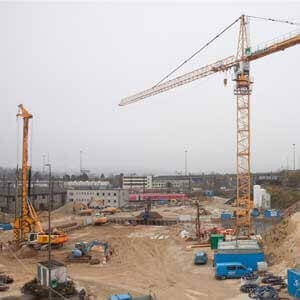
What will you study in the civil engineering course (some topics)?
What work can you do?
As a civil engineer, you could be part of any of the following teams.
You could be involved in designing, building or repairing structures, such as canals, dams, commercial properties, etc. You could be employed in private firms, consulting companies and government organizations. Usually, work takes place at construction sites and manufacturing plants.
Course duration: Four years course after 12th.
Electrical Engineering:
Why choose electrical engineering as a career?
What will you study in the electrical engineering course (some topics)?
What work can you do?
After completing your course, it is recommended to pursue higher studies to gain better career opportunities. Many graduates prefer an M.B.A. for rewarding careers. You could be employed in power plants, railways, aviation and electricity board. Consultancy-jobs are considered hot property jobs. Your job would be related to designing, developing, testing, supervising and maintaining electrical machinery.
Course duration: Four years course after 12th.
B.Sc. in Food Processing:
Why choose food processing as a career?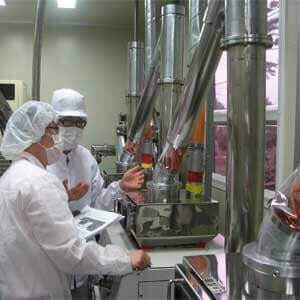
What will you study in the food processing course (some topics)?
What work can you do?
You can find jobs in research and development labs, catering companies, hospitals, restaurants, etc. Employment opportunities exist in sectors of food processing, such as fruits and vegetables, milk products, fisheries, confectionery, beverages, packaged foods, etc. Common job profiles are research scientist, food technologist, analytical chemist, bacteriologist, toxicologist, etc. You could pursue short-term courses in related fields, such as dietetics and applied nutrition, to enhance career opportunities.
Course duration: Three years course after 12th.
Mechanical Engineering:
Why choose mechanical engineering as a career?
What will you study in the mechanical engineering course (some topics)?
What work can you do?
You will design and build manufacturing units, simple and complex machinery. Mechanical engineers are proficient in multiple fields. Compared to other engineering domains, it is comparatively easy for a mechanical engineer to bag a job. Jobs are available in government, public or private sectors. Industries employing mechanical engineers are power, oil and petrochemicals, agriculture, education, steel, aerospace and automobile, etc.
Course duration: Four years course after 12th.
Degree in Veterinary Science:
Why choose veterinary as a career?
What will you study in the veterinary science course (some topics)?
After completing this course, you will be able to diagnose, treat and cure ailments and diseases in birds and animals. As a veterinarian (vet, for short), you can work in veterinary hospitals & clinics, animal husbandry & animal breeding departments within the government sector, animal welfare centres, wildlife conservation departments or organisations, zoos, national parks, wildlife sanctuaries, dairy farms, poultry farms, stud farms and defense services. Alternatively, you may choose to work as faculty in training institutes or colleges. If you are inclined toward research then you need to pursue higher studies.
Course duration: Five years course after 12th.
Bachelors of Arts (BA):
Why choose arts as a stream?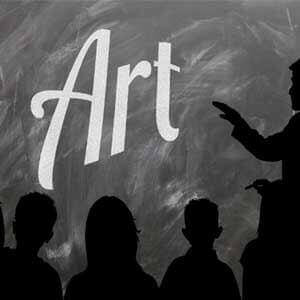
What will you study in the arts stream (some topics)?
What work can you do?
You could find jobs in both government and private sector. You could work in consultancies, multinational companies, banks, armed forces, police force and schools, etc. After pursuing this stream, you may explore fields, such as journalism, communication, law, education, film studies, interior design, fashion design, music, philosophy, theater, etc.
Course duration: Three years course after 12th.
Bachelors of Arts in Journalism:
Why choose journalism as a career?
What will you study in the journalism course (some topics)?
What work can you do?
Often after completing the course, students join companies as interns to learn the practicalities and develop their skills. You could work in any of the fields of journalism, such as broadcast journalism, investigative journalism, photo journalism, sports journalism, communication, multimedia design and social media, public relations, etc. Career opportunities are available in both government and private sector. You could work in news channels, newspapers, radio, television, publication houses, online media companies, multinational companies, etc. There are opportunities to freelance as well.
Course duration: Three years course after 12th.
Bachelors in Fashion Designing:
Why choose fashion designing as a career?
What will you study in the fashion designing course (some topics)?
What work can you do?
It takes many years to make a mark in this industry. Almost all designers aspire to set up their business. However, industry experts recommend gaining formidable experience in design stores studios. Extensive travelling and an acute understanding of the industry are beneficial. Scope of work is varied:
Course duration: Three years course after 12th.
Bachelors in Event Management:
Why choose event management as a career?
What will you study in the event management course (some topics)?
What work can you do?
You could be involved in organising different types of events, such as fashion shows, musical concerts, seminars, exhibitions, weddings, parties, etc. Your job may require you to travel frequently.
Course duration: Three years course after 12th.
Bachelors of Arts in Marketing:
Why choose marketing as a career?
What will you study in the advertising and marketing course (some topics)?
What work can you do?
Marketing graduates can be employed in government and private sector. You could find jobs in almost all sectors; in media companies, pharmaceutical companies, digital marketing agencies, advertising & communication departments of private and public companies, film production companies, market research organisations, advertising & publicity agencies, etc. Common job profiles are sales, client servicing, market research and media research, etc.
Course duration: Three years course after 12th.
Bachelors of Arts in Digital Film Making & Animation:
Why choose digital film making & animation as a career?
What will you study in the digital film making & 3D animation course (some topics)?
What work can you do?
After completing the course, you could intern at studios and develop your skills. You could find jobs in production studios, multimedia companies, advertising agencies and video gaming companies. Common job profiles are multimedia animators, digital video editors, graphic designers, etc. Freelance opportunities are also available.
Course duration: Three years course after 12th.
Bachelors in Law:
Why choose law as a career?
What will you study in the law course (some topics)?
What work can you do?
You could choose specialisation in any of the types of laws: civil law, criminal law, patent law, corporate law, etc. You could either practice as an advocate in a court of law or work with a law firm. Options, such as working as a legal adviser, teaching in colleges, working with NGOs, etc. may be considered. Common job profiles are legal advisor, criminal lawyer, civil litigation lawyer, legal journalist, government lawyer, etc. You could become a judge by clearing public service commission’s exams.
Course duration: Three years course after 12th.
Bachelors of Physical Education:
Why choose physical education as a career?
What will you study in the physical education course (some topics)?
What work can you do?
You can find employment in both private and government sectors. In the beginning of your career, you will find jobs as an instructor. But after building some experience, you can find jobs in sports department of publishing houses, sports equipment centres & industries, schools & colleges, recreation centres, fitness centres, sports teams and establishments offering adventure activities. Job profiles include coach, commentator, instructor, referee, journalist and marketing executive.
Course duration: Three years course after 12th.
Bachelors in Fine Arts:
Why choose fine arts as a career?
What will you study in the fine arts course (some topics)?
What work can you do?
After completing this course, students get employed in art galleries and publishing houses. Common job profiles are trainer and art teacher. Other options are working in advertising agencies, training institutes, textile industry, electronic media, films and theatre. You could choose to assist artists and gain some work experience. You can work as a freelancer as well. Alternatively, you can consider higher studies. After building some work experience, you can choose to be an art historian, art dealer, art therapist or art educator. If interested, you can pursue a course in animation too. This combined knowledge can pave way for rewarding career opportunities.
Course duration: Three or four years course after 12th.
Bachelor of Arts in Travel and Tourism:
Why choose travel and tourism as a career?
What will you study in the travel and tourism course (some topics)?
What work can you do?
This industry is the largest foreign exchange earner. Employment opportunities are available in both the public and the private sector in this industry. After completing this course, you can find jobs in tourism boards, travel agencies, airports, tour operating companies, cargo companies, hotels, railways and airlines. Nowadays, the scope of tourism has increased, distinct markets have sprung up: adventure tourism, religious tourism, medical tourism, agri tourism and culinary tourism. This widening of market implies opportunities for specialisation, based on your interest and work experience.
Course duration: Three years course after 12th.
Any top courses that I missed?
Or maybe you have a question about one of the courses.
Either way, let me know by leaving a comment below right now.